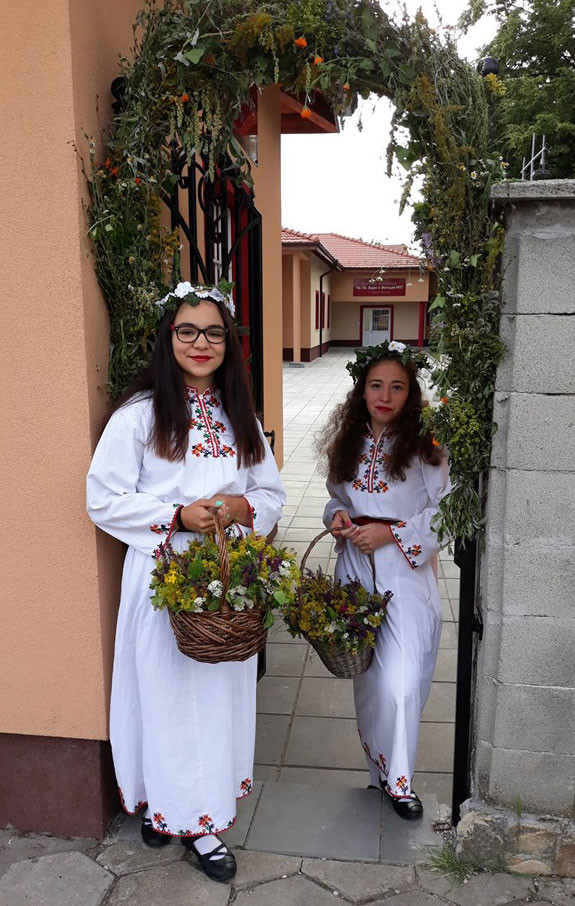On 24 June the Bulgarian Orthodox Church honours one of the most revered Christian saints – John the Baptist. In folklore tradition the day is called Enyovden, Midsummer’s day, and it is connected with different rituals and beliefs connected with the sun, water and the Earth.
The date is close to summer solstice, that is why on Enyovden people look up to the sun and try to read what it portends. According to popular belief this is a day on which we need to be awake at sunup, because the sun “flickers” and “dances” in the sky, and if we see this happening we shall be healthy throughout the year. Again according to popular belief, Enyovden portends the coming of winter, though it may still seem far off. It is believed that before “turning towards winter” the sun takes a dip in lakes and rivers, making their water curative, so before dawn everyone should wash with running water from as stream and roll around in the dew for health. Herbs picked before the sun is up on Enyovden are believed to be at their most potent. It is said that one must pick 77 herbs and a half because that is the number of diseases there are in the world, and the half is the herb that shall cure the disease that has no name.
Enyovden is a popular day, eagerly awaited in the village of Dolni Bogrov near Sofia. There, women put on white shirts and, early in the morning, go out to pick herbs – there are many and different herbs in the environs. Rumyana Krustanova who organizes the events on Enyovden says that the idea to revive old traditions came spontaneously a few years ago, and since then interest has been growing.

According to folk tradition, men are not allowed to attend the rituals of herb picking and tying of posies because of the mystery of fortune telling. At the end of the day the ritual flowers and herbs are hung up in different places around the home. It is believed that if they are picked on Enyovden they shall preserve their curative properties throughout the year. Our ancestors knew herbs well and gathered them in the fields for their medicinal properties. “For every ailment there is a herb,” as the popular saying goes.
In the Bulgarian folk tradition, the feasts of Lazarus Saturday and Palm Sunday are related holidays. From Lazarus Saturday (Lazarovden in Bulgaria), girls prepare for the ritual kumichene, which is performed on the morning of Palm Sunday. A very old..
In April and May the visitors of the Strelcha Historical Museum will have the opportunity to get acquainted with the traditions connected with the Easter holiday cycle through the exhibition A Fine Easter, a Finer St. George’s Day . Easter..
Lazarus Saturday is widely known in Bulgaria as Lazarovden , celebrated by Orthodox Bulgarians on the day before Palm Sunday. The main rite is the lazaruvane - a traditional custom centred on themes of love and marriage. Girls over the age of 16,..

+359 2 9336 661
